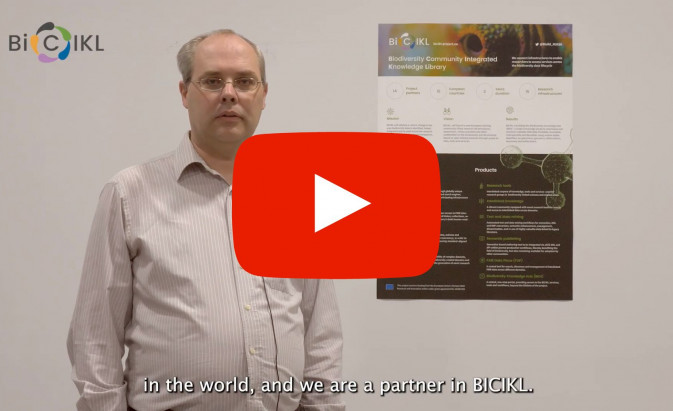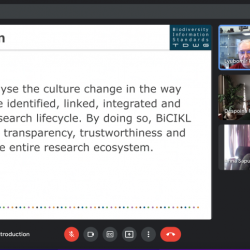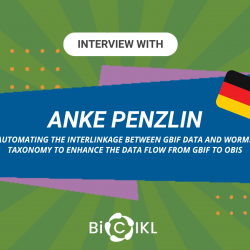Wouter Addink is working at Naturalis Biodiversity Center in Leiden, the Nederlands.
"Naturalis is one of the largest natural history collections/musea in the world, and we are a partner in BICIKL. The main reason for that is not only our collection, but we are leading a European endeavour towards a research infrastructure for collections in Europe that will provide all the collections in Europe as one European virtual collection."
What do you expect from participating in BiCIKL?
Our participation in the project is partly to help build that infrastructure. One of the main goals is to create an infrastructure with persistent identifiers for all specimens in Europe, so that we can link them to all kinds of other data that is related to or derived from the specimens.
The data is in other research infrastructures, and that is why it is very interesting to be in the BiCIKL project because there we can make relationships and create linkages with the other infrastructures. So, that is our main reason to be in the project.
What are you targeting?
The specific targets for our institution in this project are mainly to curate an infrastructure of persistent identifiers for the specimens and link that to the data that is in the other infrastructures, and the other participants in the project.
But also, we want to give access to that data within the project and we want to help build the common infrastructure, the FAIR data place in the project.
I think this is the first time that we have a project where actually the focus is on curating a community of infrastructures. Also, what is unique in this project is that the literature is the central component in that.


